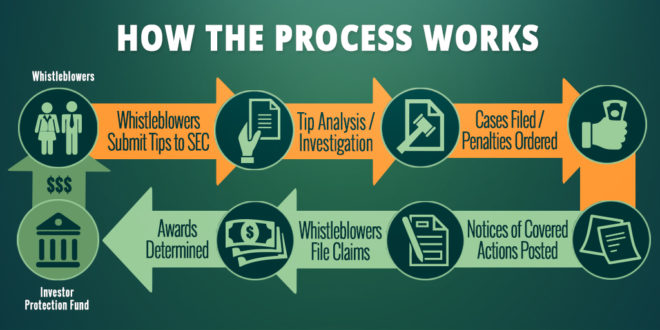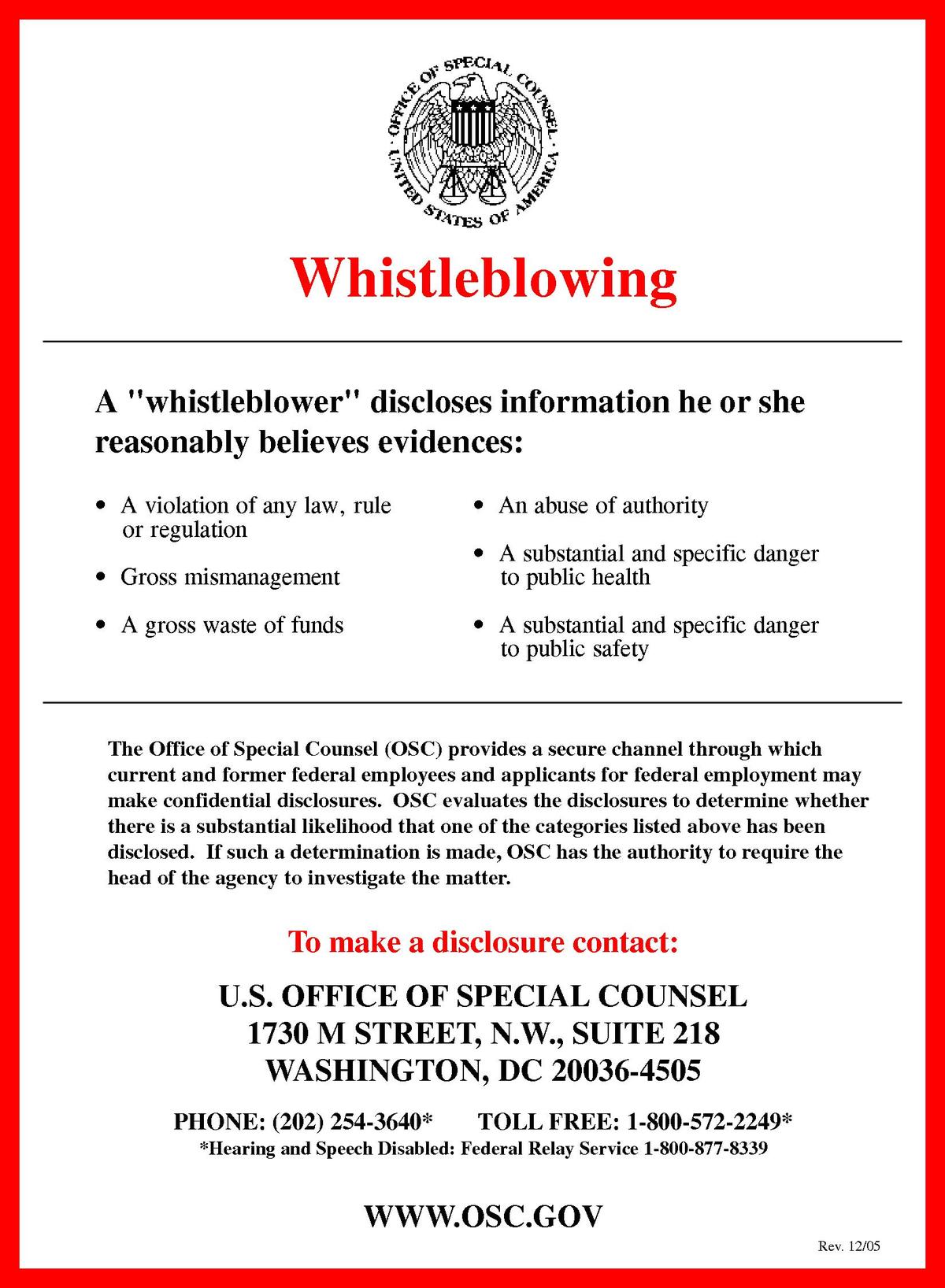Federal
Agencies Declare Whistleblowers ‘Essential’ to Good Government, Tout Savings
By Tom Buerkle
While Donald Trump has renewed demands that the media expose the
person who first warned about his Ukraine phone call that
triggered the impeachment inquiry, other parts of his administration are
defending whistleblowers and showing how essential they are to the proper
functioning of our government.
The Securities and Exchange Commission announced Wednesday that
it had provided more than $2 billion in
financial remedies to investors since 2011 because of tips
about fraud and other wrongdoing.
It also paid $387 million in awards to the whistleblowers who gave that information.
It also paid $387 million in awards to the whistleblowers who gave that information.
“Success begets success,” the agency’s Division of Enforcement
said in its latest annual report. “
As a result, we again received thousands of whistleblower tips and a record number of whistleblower claims in Fiscal Year 2019,” which ended in September.
As a result, we again received thousands of whistleblower tips and a record number of whistleblower claims in Fiscal Year 2019,” which ended in September.
Trump
doesn’t want to hear that good news, or defend decades of legislation and
precedent that protect whistleblowers.
It’s not just the SEC that’s benefiting from tipsters.
At a sister agency, the Commodity Futures Trading Commission, information from whistleblowers helps drive 40% of fraud and misconduct investigations and has resulted in more than $730 million in penalties, enforcement chief James McDonald said recently.
At a sister agency, the Commodity Futures Trading Commission, information from whistleblowers helps drive 40% of fraud and misconduct investigations and has resulted in more than $730 million in penalties, enforcement chief James McDonald said recently.

‘Urgent Concern’
Trump doesn’t want to hear that good news, or defend decades of legislation and precedent that protect whistleblowers. An unidentified individual first raised “urgent concerns” about Trump’s July 25 phone call with Ukraine’s President Volodymyr Zelenskyy. Since then Trump and Republicans in Congress have tried to dismiss the complaint as erroneous second-hand information.
The president has continued to fixate on the whistleblower even
though several senior diplomats have testified under
oath before the House Intelligence Committee that Trump
demanded Zelenskyy publicly commit to investigating his presidential rival,
former Vice President Joe Biden, before releasing military aid for Ukraine.
Yet although some right-wing media outlets have identified the person they believe to be the whistleblower, Trump so far has been careful to avoid using the name himself, as that could open him to yet another impeachment charge.
Yet although some right-wing media outlets have identified the person they believe to be the whistleblower, Trump so far has been careful to avoid using the name himself, as that could open him to yet another impeachment charge.
Congress outlawed retaliation against whistleblowers in the 1978
law that established Inspector General offices in cabinet departments and
federal agencies.
Legislation in 2012 strengthened those protections and created a Whistleblower Protection Ombudsman in each IG to educate employees about their rights and encourage them to come forward.
An update of that law, actually signed by Trump last year, renamed those positions as coordinators, made them permanent, and ordered officials to develop best practices for enforcing whistleblower protection laws.
Legislation in 2012 strengthened those protections and created a Whistleblower Protection Ombudsman in each IG to educate employees about their rights and encourage them to come forward.
An update of that law, actually signed by Trump last year, renamed those positions as coordinators, made them permanent, and ordered officials to develop best practices for enforcing whistleblower protection laws.
The U.S. Office of Special Counsel, which enforces the
whistleblower act, more than
doubled disciplinary actions against retaliators in the first
five years since the 2012 law came into force.
Pays
for Itself
The whistleblower program pays for itself many times over, even
after deducting awards to tipsters. In one of the biggest cases, Johnson &
Johnson and its subsidiaries agreed to pay
$2.2 billion in fines and forfeitures in 2013 to settle
allegations of promoting drugs for uses not approved by the Food and Drug Administration.
That case began with private citizens.
The program is about more than just money.
The Department of Defense, which has one of the largest IG
offices, receives about 14,000
complaints to its whistleblower hotline each year, including
allegations of sexual assault and misconduct by senior military officers.
“Whistleblowing is not a ‘nice to have’ function; it is
essential to the national security and defense mission of the Federal
government,” the Pentagon’s
whistleblower hotline homepage states. If the commander in
chief can’t defend that, he isn’t fit to hold the office.
